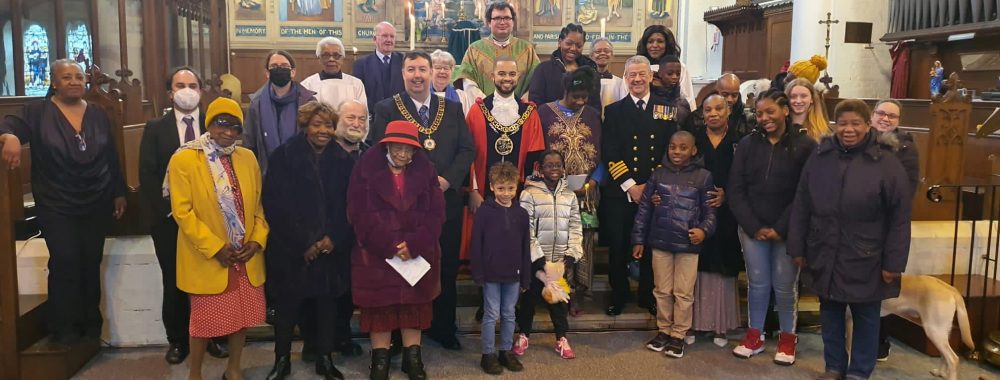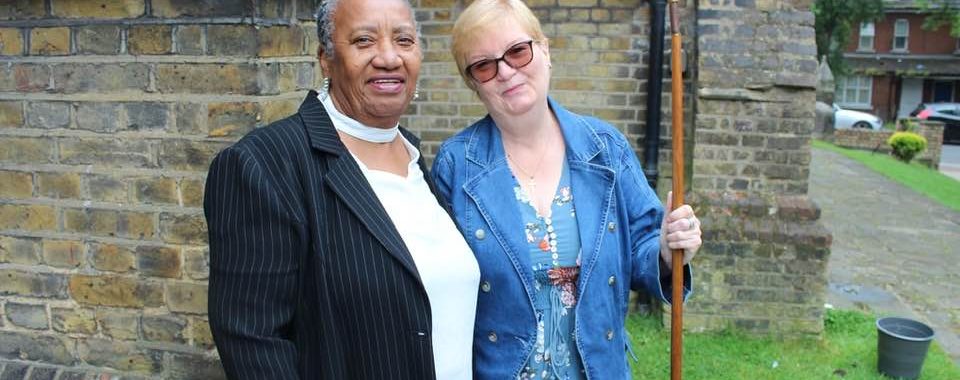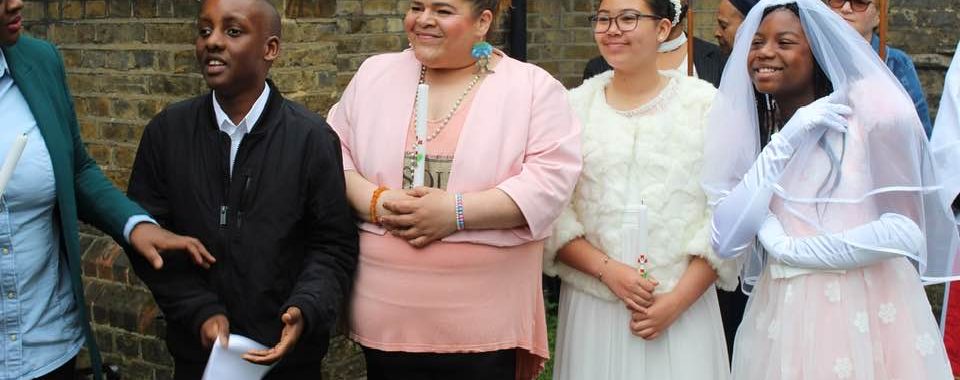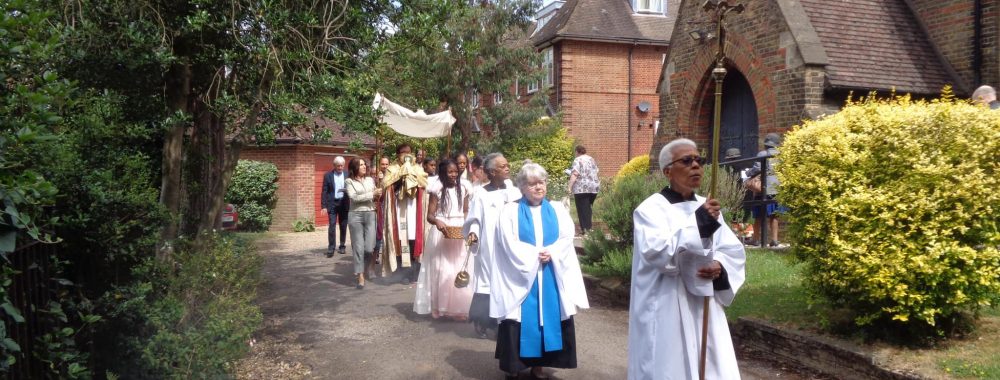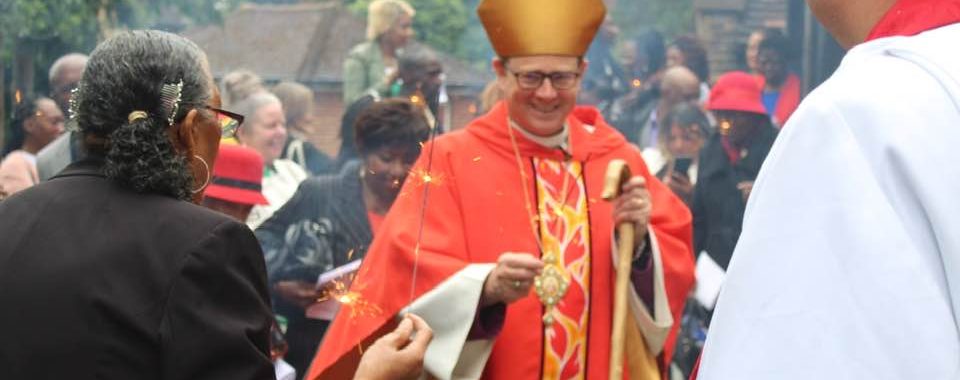It was lovely to have the Bishop of Edmonton with us to celebrate Mass on Holy Innocents’ Day. Here is the text of his sermon
King Herod was installed by the Romans some 33 years before our Lord’s birth. He ruled as a despot with ruthless efficiency and our Gospel story fits the character described in other sources. Viewed from the perspective of our modern age we can see the mass murder of these innocent victims as the precursor of the so-called ‘final solution’, the murder of Jews, gypsies, homosexuals and the mentally and physically handicapped, imagined by the Nazi regime in the Second World War.
The ongoing slaughter of the innocents puts, as it were, God himself on trial. It is this depth of sin and evil which moves God to his own, if we may call it such, ‘final solution’, the sending of his Son into the world.
In this Christmastide Eucharist we encounter both the first and the last moments of Jesus’s life. We hear Jesus’s words interpreting his death – my blood shed for you so that sins may be forgiven, so that there may be shalom, universal peace. Like the scapegoat symbolically driven outside the camp into the desert on the day of atonement, burdened with the sins of the people, Jesus takes on his shoulders the alienation of the world, the innocent man dying to save the many who are guilty. What this festival says to us is that God’s Son suffers with all the innocent of the world. And when Jesus is crucified ‘outside the camp’ he cries, ‘I thirst’. It is the universal cry of dereliction, ‘My God, my God, why have you forsaken me.’, God taking into himself the universal experience of feeling abandoned. But it is also the divine cry of longing for a communion of love with his creation.
So how can humankind move forward? – only if the good are willing to absorb some of the sin and evil in the world, only if even in our weakness and pain we can show love, tough love involving forgiveness.
‘Do you believe in God?’ asks a market researcher in north London, presumably in the Edmonton Area. ‘Yes’ comes the reply.
‘Do you believe in a God who can change the course of events on earth?’ ‘No, just the ordinary one.’
But we believe in the extraordinary God whose first and last Word to us is Jesus Christ, who takes so-called ordinary people like me, like you, and endows us all with his Spirit for different work and ministry.
The extraordinarily good news is ‘Emmanuel, God with us.’ God is as he is in Jesus, and therefore we have hope.
